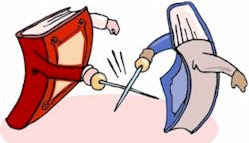

Beautiful Monster: Damnation Books, August 2012, 185 pages, cover art by Dawné Dominique. Beautiful Monster is Jared S. Anderson's first published novel. Mimi A. Williams is a pen name of children's author Kim Williams Justesen.
Sterling Bronson is good looking, and he knows it. He's also rich. At the gym he's been watching a woman for weeks. He corners her to ask her out, acting like Mr. Nice Guy. But, since this is told in first person, we know his snide thoughts about her. The woman, Melanie, gives Sterling her phone number. They agree to meet the next evening at a restaurant for dinner and drinks. Afterwards, Melanie unwisely follows Sterling to his home, where Sterling seduces and kills her.
Brenna Carlson is a student taking classes to become a social worker. She works at a clinic with kids. Brenna chats with her roommate Courtney. Brenna is pondering if her boyfriend Trey is "the one". Brenna has been waiting until it feels right to go all the way.
The chapters of Beautiful Monster alternate point of view between Sterling and Brenna.
The Rise of Ransom City: Tor Books, November 2012, 366 pages. The Rise of Ransom City is Felix Gilman's fourth novel, and is a loose sequel to The Half-Made World, which I have read.
The Rise of Ransom City is the autobiography of the once famous, or notorious, Mr. Harry Ransom. In the forward, the editor, fictional newspaperman Elmer Merrial Carson, states that it took him years to track down parts of the scattered manuscript.
The book begins with Harry's childhood. He grew up in a coal mining town, youngest of four children, son of a undertaker. His home town was neutral in the Great War between Gun and Line, but near Line territory. When young Harry became deathly sick with a mysterious illness, Harry's proud father pleaded with some Linesmen, who had more advanced medicine, to save Harry's life. The Linesmen demanded a heavy price from Harry's father, including publicly supporting the Line, to cure Harry with a strange electrical apparatus.
Harry was self-educated. He sold encyclopedias to help pay his family's debts. By the time he was nineteen he had built a prototype for his Ransom Light-Bringing Process, inspired by the electrical apparatus the Linesmen used on him. He started calling himself Professor and traveled seeking potential investors. Harry barely escaped being killed in Melville City's Main Street Hotel by an off-target, Line-made, poison gas rocket.
The Battle: This time we have a battle between an erotic horror book and a steampunk fantasy set in an alternate world inspired by the American Old West.
Beautiful Monster, in my opinion, contained a disturbing mix of explicit sex and graphic violence. In the first 25 pages there were two sadistic sex scenes. The writing was very direct, and, I felt, lacked subtlety.
The authors of Beautiful Monster successfully made Sterling Bronson into a nightmarish character, which is good, I guess, if you like this type of horror. But I'd prefer not to read about a serial killer, and especially not from the killer's point of view.
The Rise of Ransom City is a rambling tale, told in a chatty, old-fashioned style. There were teasers for where the story is heading in Harry Ransom's humorously long-winded manuscript title, of which this is only the first third:
AN AUTOBIOGRAPHY, in Parts,Battle of the Books is inherently subjective. I read 25 pages of each of these books. For me, The Rise of Ransom City wins this match hands down.
Written on The Road Between Here and The Western Rim,
And Mostly On The Run, I expect
CONTAINING AN EXPLANATION OF SORTS
And An Apology OF A Kind
For Some Recent Events in The Great War
and SOME ADVERTISEMENTS for
Ransom City, soon to rise In The West,
"THE CITY OF THE FUTURE"
THE WINNER: The Rise of Ransom City by Felix Gilman
The Rise of Ransom City advances to the second round to face The Demoness of Waking Dreams by Stephanie Chong.
To see the whole bracket, click here.



























